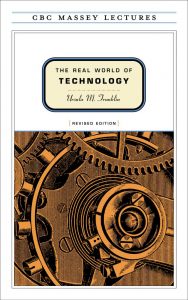 Currently reading The New Influencers: a marketer’s guide to the new social media, by Paul Gillin. Having new influencers definitely changes how we do our marketing and advertising. While the ‘wisdom of the crowds’ helps people make better decisions, they sometimes make ‘colossal’ mistakes as well. Gillin focuses mostly on blogging and bloggers as opposed to any other social media tool.
Currently reading The New Influencers: a marketer’s guide to the new social media, by Paul Gillin. Having new influencers definitely changes how we do our marketing and advertising. While the ‘wisdom of the crowds’ helps people make better decisions, they sometimes make ‘colossal’ mistakes as well. Gillin focuses mostly on blogging and bloggers as opposed to any other social media tool.
In any case, bloggers, according to Gillin, the new influencers of social media, have a sort of set of unspoken and unwritten defining standards… akin to a constitution of their own: thou shalt link [which is the ‘glue that holds it all together for credibility]; thou shalt not diss [practicing parliamentary civility]; thous shalt be transparent [includes ‘honesty, integrity, humility, open-mindedness and fairness’]; thou shalt comment [‘commenting is a core part of blogging protocol’] . thou shalt not blather [posts need to be concise and to the point].
He goes on to talk about blogging for and within corporations as public relations issues and gives examples of those he calls the top ‘A-list’ bloggers who are the most influential in present day markets.
 Ursula Franklin, in The Real World of Technology wrote:
Ursula Franklin, in The Real World of Technology wrote:

